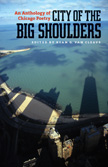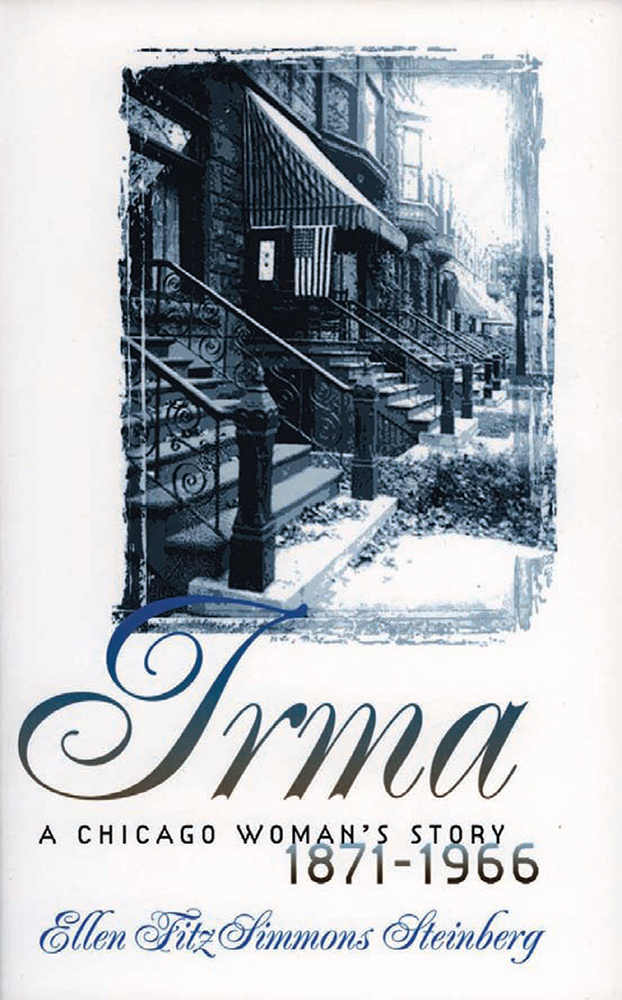Chicago has served as touchstone and muse to generations of writers and artists defined by their relationship to the city’s history, lore, inhabitants, landmarks, joys and sorrows, pride and shame. The poetic conversations inspired by Chicago have long been a vital part of America’s literary landscape, from Carl Sandburg and Gwendolyn Brooks to experimental writers and today’s slam poets. The one hundred contributors to this vibrant collection take their materials and their inspirations from the city itself in a way that continues this energetic dialogue.
The cultural, ethnic, and aesthetic diversity in this gathering of poems springs from a variety of viewpoints, styles, and voices as multifaceted and energetic as the city itself. Cristin O’Keefe Aptowicz: “I want to eat / in a city smart enough to know that if you / are going to have that heart attack, you might / as well have the pleasure of knowing // you’ve really earned it”; Renny Golden: “In the heat of May 1937, my grandfather / sits in the spring grass of an industrial park / with hundreds of striking steelworkers”; Joey Nicoletti: “The wind pulls a muscle / as fans yell the vine off the outfield wall, / mustard-stained shirts, hot dog smiles, and all.”
The combined energies of these poems reveal the mystery and beauty that is Second City, the City by the Lake, New Gotham, Paris on the Prairie, the Windy City, the Heart of America, and Sandburg’s iconic City of the Big Shoulders.
“From the stockyard to the speakeasy, the steakhouse to the flophouse, the top of the Hancock tower to the thirteenth floor of an east-side tenement, what this eclectic gathering of poets shares is a commitment to honoring Chicago’s roots. Infused with a passion beyond the reach of prose, here is an ‘intimate ethnography’—part torch song, part folk song, part ballad, part dirge—of a city both ‘on the make’ and ‘on the take.’”—Suzanne Buffam, author, The Irrationalist
“What is so striking about this anthology of Chicago poetry is how much it is a poetry of arrival and departure—Iowans and Texans and others who chose the city, because once they spent time in this city which then chose them. This anthology is as much about facing the pleasures and demands of urban America as it is specifically about Chicago, as when Campbell McGrath observes that ‘money courses through Chicago’s veins like the essence urging the redbuds into bloom’: he takes note of America, not just Chicago.”—Bin Ramke, author, Theory of Mind: New and Selected Poems, 1978–2008
“A city like Chicago deserves an anthology of this scope: bursting with the life lived on the streets in the Loop and alive with childhood memories as seen from the city’s neighborhood windows. Ryan Van Cleave has collected a prodigious swath of poems from writers commemorating their Chicago, a city as big in our imaginations as it is from the view at Promontory Point Park.”—Joshua Marie Wilkinson, author, Selenography
For an interview with Ryan in the Huffington Post, please click here.
Rane Arroyo
Marvin Bell
Allen Braden
John Bradley
Curtis L. Crisler
Mary Cross
James D’Agostino
Stuart Dybek
Susan Elbe
Dina Elenbogen
Martín Espada
Beth Ann Fennelly
Bob Hicok
Edward Hirsch
Philip Jenks & Simone Muench
Thomas L. Johnson
Quraysh Ali Lansana
Viola Lee
Francesco Levato
Campbell McGrath
Paul Martínez Pompa
Adrian Matejka
Erika Mikkalo
Julie Parson Nesbitt
Johanny Vázquez Paz
James Plath
Christina Pugh
Maya Quintero
Robyn Schiff
Patricia Smith
Tony Trigilio
Alpay Ulku
Judith Valente
Nicole Walker
Ellen Wehle
Brenda Yates
Windy City
Christina Pugh
They wrote all over the rocks, the ones
who came before and come still; choicer
than graffiti, the paint cubed and letters
blocked like epitaphs: Acid or small groove
or baby cakes. And primary colors whet
the schools of foam the lake makes,
its mobile cursive less serene, while the city
wells above that trace of sociability—
its steeples snuffed, or nearly, in the mist:
this could have been Christminster,
or these the moral rocks Tess read
on her journey home in terrible,
delicate boots: the shores mirror us
always, but the city transpires.


